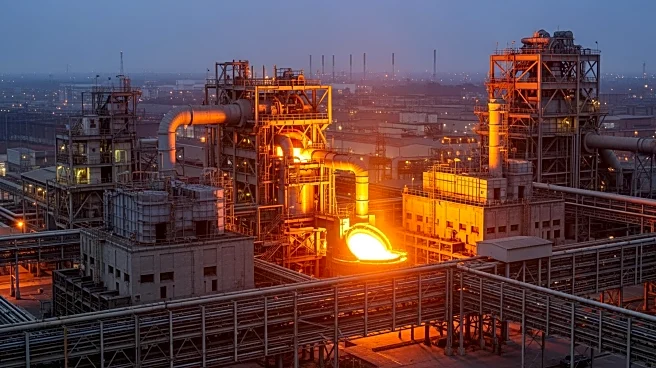What's Happening?
Meta's head of infrastructure, Santosh Janardhan, announced a significant shift in the company's approach to AI and augmented reality (AR) technologies. On October 15, 2025, Janardhan revealed plans to move Meta's ranking systems to Arm's Neoverse, a decision
that is part of a broader strategy to enhance AI-driven features. This move is expected to impact approximately 3 billion users globally. The announcement has sparked a debate among engineers and privacy advocates. While some engineers are optimistic about the efficiency gains, others are concerned about the potential for rushed rollouts and the associated risks. Privacy advocates have raised alarms about increased surveillance and moderation challenges as these systems scale. The infrastructure expansion involves multi-gigawatt data center projects planned through 2027, raising questions about power consumption and costs.
Why It's Important?
The expansion of AI infrastructure by Meta is significant as it highlights the growing tension between technological advancement and regulatory oversight. The move to enhance AI capabilities could lead to improved user experiences and operational efficiencies. However, it also poses risks related to privacy and data security, as increased surveillance capabilities could infringe on user privacy. The scale of the infrastructure projects underscores the substantial energy and financial investments required, which could have broader implications for environmental sustainability and economic costs. Stakeholders, including regulators, developers, and users, are likely to be affected by these developments, as they navigate the balance between innovation and ethical considerations.
What's Next?
As Meta accelerates its AI-driven initiatives, there will likely be increased scrutiny from regulators and privacy advocates. The company may face compliance challenges as it seeks to align its infrastructure expansion with existing and emerging regulations. Users could experience changes in content moderation and privacy settings, prompting potential backlash or demands for greater transparency. Developers and operators will need to address the technical and ethical implications of these advancements, potentially leading to new industry standards or guidelines. The ongoing debate between speed and safeguards will continue to shape the trajectory of AI and AR technologies.
Beyond the Headlines
The broader implications of Meta's AI infrastructure expansion extend to ethical and cultural dimensions. The potential for increased surveillance raises questions about user autonomy and consent, challenging societal norms around privacy. The energy demands of large-scale data centers also highlight environmental concerns, prompting discussions about sustainable technology practices. As AI technologies become more integrated into daily life, there is a need for ongoing dialogue about the ethical use of such technologies and their impact on human rights and societal values.














